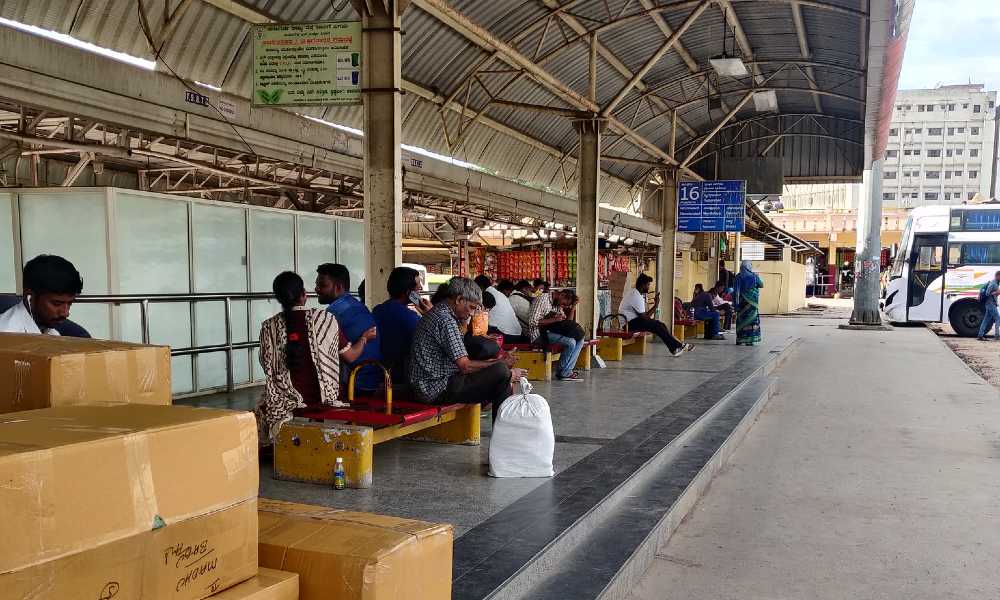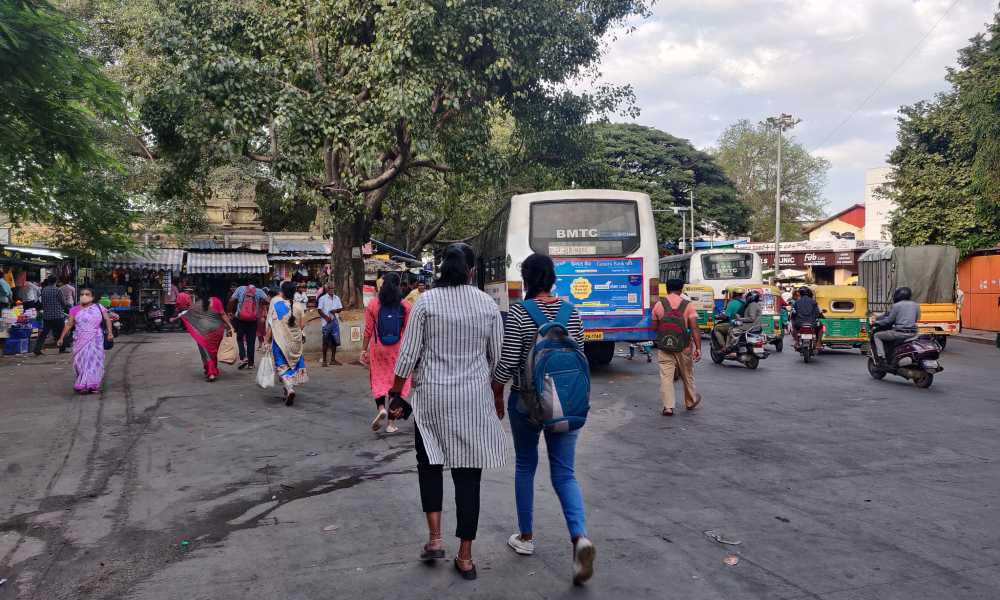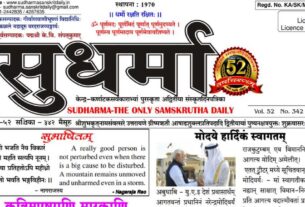Insufficient number of buses in the city adds to the woes of the daily commuters. The city has only one bus for over 1900 people.
Bengaluru does not have enough buses to accommodate its daily commuters. The number of buses in the city is insufficient and is causing problems for its commuters.
The Bengaluru Metropolitan Transport Corporation (BMTC) website shows that Bengaluru has 6,798 buses. The UN World Population Prospects states that the city has a population of 1.29 crores. Based on this, the bus to people ratio is 1 to 1901.
Buses older than 10 years are usually scrapped but due to a shortage of buses, they were not scrapped.
Low number of buses for such a large population is affecting the lower and middle-class residents as the metro is still in its nascent stage and does not connect many areas yet. Acollege student, sitting on the footpath waiting for the bus, said, “Owning a car isn’t really an option for me, and the nearest metro station is a little far, so buses are my only option. So I think something must be done to increase the public transportation services.”
Bengaluru has 10 Traffic Transit Management Centres (TTMC) that look after the general needs of the commuters and also maintain the buses. BMTC Bus Pass website states that TTMCs check the vehicle’s health and control the services of the vehicle. In most cases, servicing and maintenance of a bus happens in the nearest bus depot.
A Kengeri BMTC bus depot official said, “The buses are maintained periodically every 10 days, and Bengaluru has around 45 depots. Each depot has an average of 130 to 140 buses visiting it every day. Buses that have an unexpected breakdown are kept in the depot, depending on the nature of the breakdown. They have at least two buses coming in every day for such repairs.” Based on this, if each of the 46 depots gets two buses with unexpected trouble then 92 buses would be out of order every day.
A recent Times of India (TOI) article says, “Going by global standards, the city needs at least 12,000 buses. However, BMTC is currently operating just 5,660 buses owing to shortage of, especially drivers. The number of BMTC drivers has sharply dipped over the past few years, with many having retired or lost their lives to COVID-19. But there has been no recruitment for several years to fill the vacancies.” This is another issue that has added to the current situation of bus shortage making it even harder for the daily commuters.
A 64-year-old man near the Krishna Rajendra (KR) Market Bus station said, “I have been waiting for 20 min now for the bus and I’m tired now, but what to do other than wait.”
Srinivasaya, K R Market bus stand traffic controller, said, “We have 170 buses with 170 drivers and conductors, who do not have a replacement. The frequency of buses ranges from 10 min to 25 minutes and drivers are divided into three shifts.” He added that each bus can accommodate 46-48 people. The K R Market bus stop then can service only 8160 people, approximately.
Officials from the organisation Friends with BMTC said, “There does actually seem to be public consistently stating that there is a shortage of buses and from what I know around 5000 buses are running daily out of the 6500 buses. I believe the remaining 1500 buses are used as replacement buses and AC buses in bus depots that are not used that much.”
Urban bus Toolkit states that the number of buses required per 1,000 people will depend on various factors like capacity of the buses, the presence of rail or other public transport modes. It also depends on the average length of bus journeys undertaken by each inhabitant of the city. With so many variables, the minimum requirement varies considerably from city to city, but typically lies between 0.5 and 1.2 per 1,000 people. It means that there should be at least one bus for 1000 people, but in Bengaluru there is one bus per 1901 people which is almost half of what it should be.
A public transport consultant said, “There is a significant shortage of buses but because the service is not provided people are looking for alternative modes like cabs, metro and their own transport. The shortage is not due to the lack of BMTC’s capabilities, it is because public buses are expensive and require consistent money flow from the government.” He added that their budgets are typically capital oriented so they generally get money to purchase certain things like depots, terminals.
He said that in a bus operation cycle 80 percent of the cost is the staff and fuel and that there is no legislation to provide for this. He added, “Previously the cities or state revised the ticket fare whenever there was a fuel hike or based on the overall cost of the service, the fares were increased. But now people are moving to other modes so they cannot increase the fare anymore, due to this regulatory gap they are unable to provide buses.”






